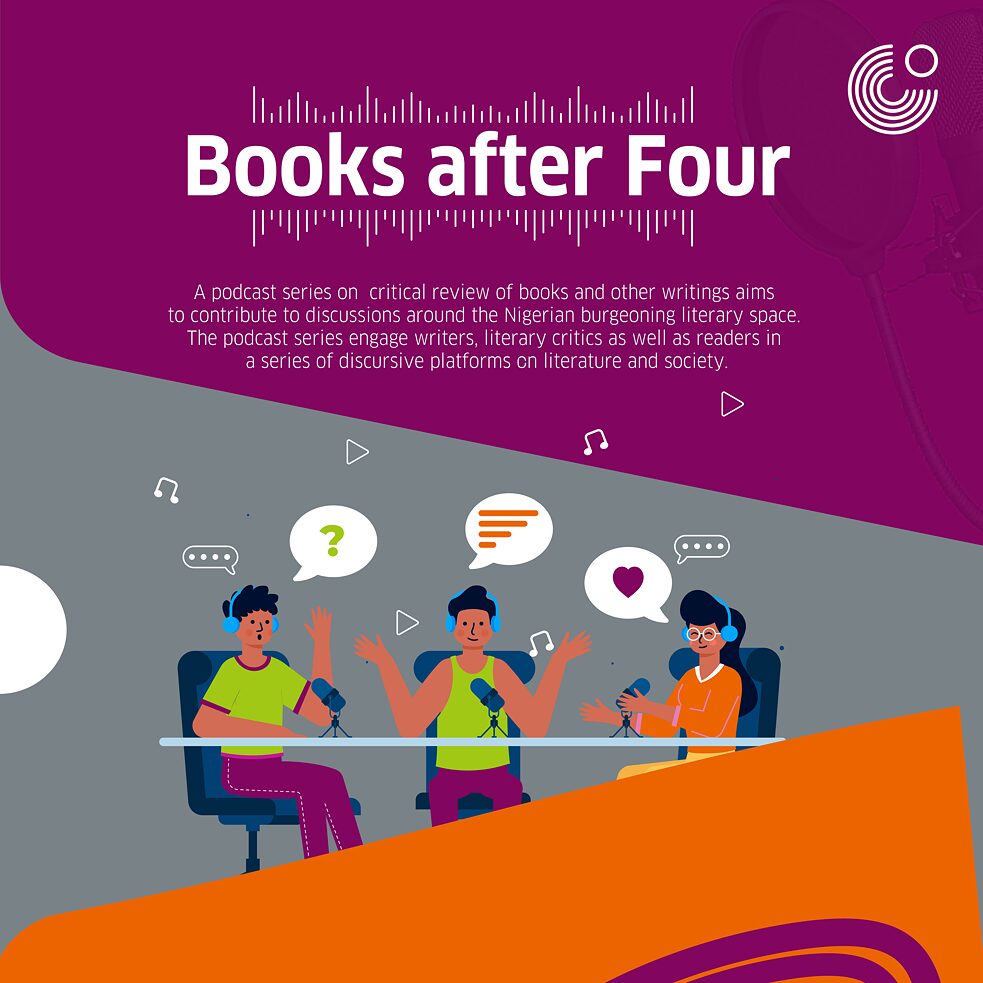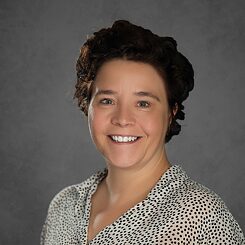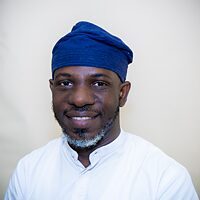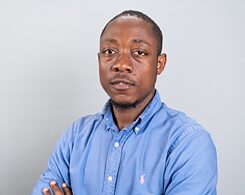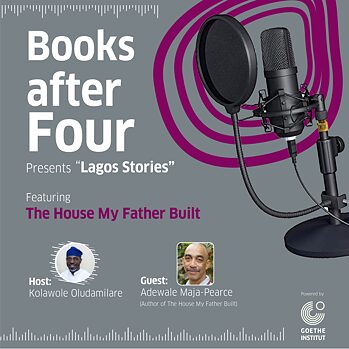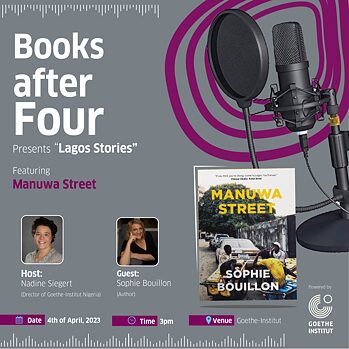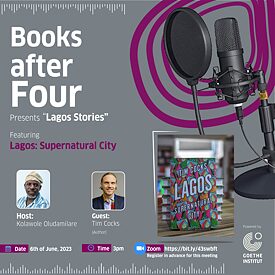Meet the Hosts
Dr. Nadine Siegert is the director of Goethe-Institut Nigeria and has worked in Rwanda and South Africa before. Until 2019, she was the deputy director of Iwalewahaus, University of Bayreuth (Germany). She is also a publisher with iwalewabooks and works on African contemporary and modern arts. She is a book lover and loves to learn about Lagos through novels, art and poetry.
Kolawole Oludamilare is an art and culture administrator, writer and activist from Lagos, Nigeria. He holds a bachelor of science in Agricultural Extension/Sociology from the University of Ilorin, Nigeria. He is soon-to-be-published novelist and loves to read works of fiction.
Georges Gambadatoun has recently joined the Goethe-Institut Nigeria as the head of information and library. He is a porject managment graduate and the co-founder of Blog4SDGs.
